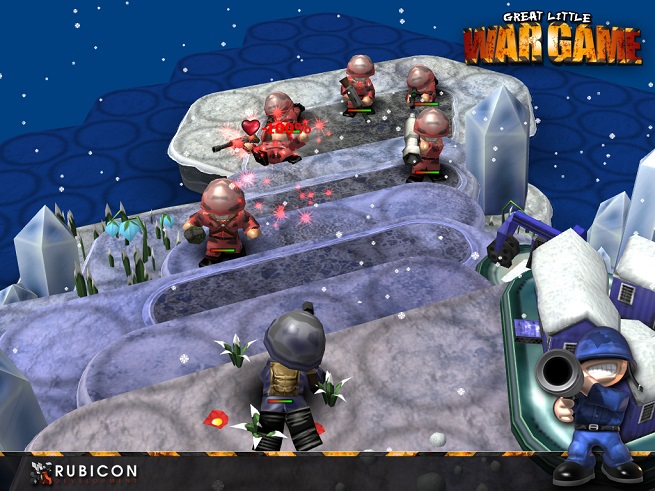No marketing or PR
The five core people who made Great Little War Game are all seasoned professional developers, able to boast about a hundred years of experience between them. That’s frankly ridiculous.
However, as a publishing company we have all the marketing skills you’d expect of five nerdy developers: i.e., none at all. Even despite the fact that we ran out of time and money to make some inroads here, I’ve so far glossed over the fact that we wouldn’t have been able to anyway through utter lack of knowledge.
If you want a classic example, this postmortem can be considered a PR activity, and it’s taken me over two years to get around to writing it. If any more PR-savvy person can point to something we did right during our launch — and I can’t think of anything offhand — I can assure them it was a complete accident!
AI Weekly
The must-read newsletter for AI and Big Data industry written by Khari Johnson, Kyle Wiggers, and Seth Colaner.
Included with VentureBeat Insider and VentureBeat VIP memberships.
We’re fully aware that we should have a little black book full of magazine editors’ contact info and so on, but I just don’t know how to go about getting them. I don’t feel comfortable making these kinds of cold contacts, as any advance I might make is going to be blatantly transparent and self-serving, and I’m just not pushy enough. Here’s what I’d read if someone did it to me, right before I pressed the add-to-spam button.
“Hello <database_entry>. You don’t know me, but can you give me your details so that I can abuse you in future and get you to sell my stuff for me?”
Hands up anyone reading this who hasn’t thought the same? I know it’s wrong, but I just can’t get past it. Which means this is a mistake we’re bound to repeat over and over. (I do hope game consultant Brian Baglow isn’t reading this.)
We plugged this hole in the future by retaining a PR consultant to handle our game launches, which is the best we can do. If nothing else, first do no harm!
Other format time-wasters
We wasted a lot of time trying to get the game out on PlayStation Vita. It took about four months of development time to get the game running, which seemed reasonable, but then the paperwork and other expenses started.
Four months after that, we realized we weren’t even close to meeting all these pointless hurdles and just gave it up. We simply didn’t see the benefit of making a video of an uninterrupted play session through our 20 hour game or to pay to get the Finnish review board to give us a censorship rating, or for that matter to pay a translation service to do the Flemish upsell page. (I can’t remember the actual details offhand, but that’s indicative.) Oh, and now you’ve done all this guys, you can’t sell it in America because there’s no multiplayer. Thank you and goodnight.
In hindsight it was a smart move to stop when we did, but better still to not have wasted eight months of precious development time at all.
We also got involved in the proto-Chrome Web Store that was just opening at the time. Google covered the cost of us getting the game working in JavaScript by a third party, who did very well out of it. However, we haven’t seen a penny in profit, so this was another time-waster.
Because we had a PC build working, we tried to sell that also. Steam wouldn’t even return our e-mail, so we ended up placing the game with a few well-known portals such as Arcade Town and Big Fish. Those sites are great in their own spheres, but Great Little War Game just isn’t the sort of game their typical customers want, so this proved another waste of time for us.
Conclusion
Despite those many “opportunities to improve” at the start, we’re pretty proud of what we did here. We didn’t make it big, and we needed some luck to make it at all, but we did at least make it. And given the crippled start we gave ourselves, that’s no mean feat. I think we even learned from some of those mistakes. …
Paul Johnson is the managing director and cofounder of Rubicon Development and was also the project and programming lead for Great Little War Game. Since his games industry debut in the 1980s, Johnson has spent the intervening years predominantly getting wider.
VentureBeat's mission is to be a digital town square for technical decision-makers to gain knowledge about transformative enterprise technology and transact. Learn More

